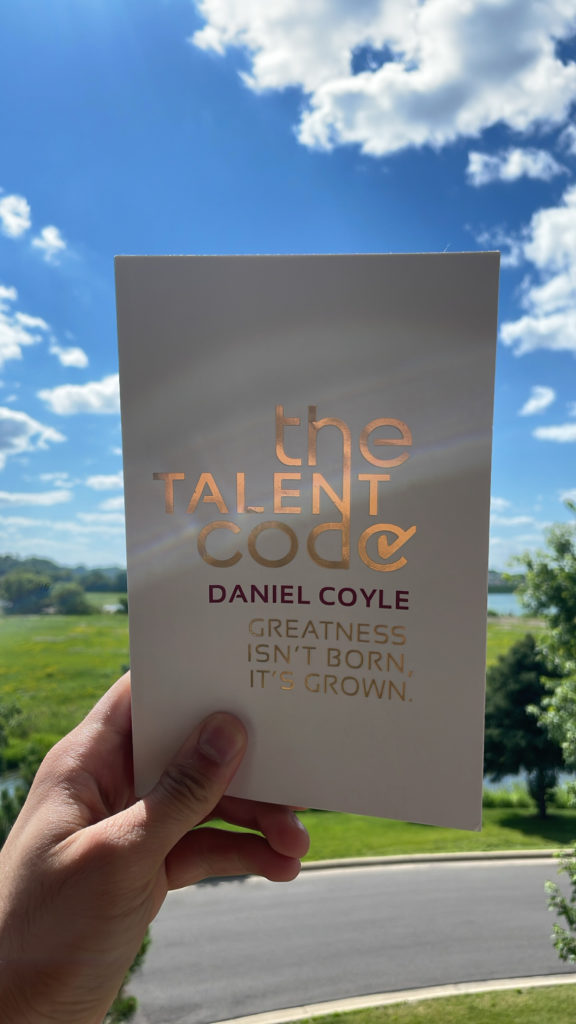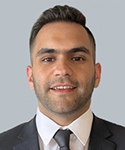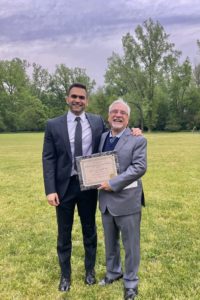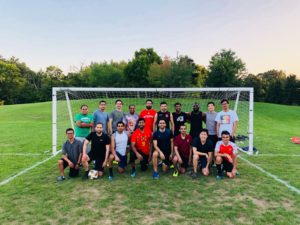June 29th, 2022
The Talent Code of Residency Training
Abdullah Al-abcha, MD
After spending 4 to 6 years in medical school, physicians typically spend 3 to 7 years in residency training. Residency training is a crucial step that shapes us as physicians. We spend long hours at the hospital taking care of patients, and we learn directly from these encounters. We also spend a lot of hours studying, and learning the science behind what we do, and why we do things in certain ways. These two experiences go hand in hand and complement each other to prepare us to become practicing physicians.
A common question that almost all trainees think of before starting residency is, “what are the best ways to learn, grow, and excel in residency?” In this article, I’ll try to summarize my answer based on Daniel Coyle’s book, The Talent Code.
In The Talent Code, Daniel summarizes his experiences of visiting what he describes as “talent hotbeds” around the globe. Talent hotbeds are places that produce many “talented” people. Daniel argues that talent and greatness aren’t born, they are grown. He comes up with 3 essential factors that are needed to reach greatness — deep learning, ignition, and master coaching. Daniel provides excellent examples of how these factors have been applied in different hotbeds.
Deep Learning
Deep learning is based on trying, failing, and trying again to fail less. Daniel explains in the book that this is a way to build myelin, and myelin is the key to talent. The problem in medicine is that failure to recognize a disease or inappropriately treating a disease affects patients’ lives. Thus, failing in medicine is dangerous. However, this is the reason we complete residency. As a junior resident, you practice under the supervision of a senior resident, a fellow, and an attending. You have a safety net of multiple layers.
 The practice of medicine is based on recognizing patterns and making the correct diagnosis. The more you try to recognize a pattern, the more myelin you build, and hence you get better at recognizing patterns. Trying and failing is an uncomfortable feeling. Unfortunately, it’s key in the process of learning. It takes courage to speak or answer a question when you’re not certain about the answer. However, as a junior resident, you won’t be certain about most things. And by not taking the chance to share your thought process, you’re missing out on trying, failing, and reducing the likelihood of failing the next time you try.
The practice of medicine is based on recognizing patterns and making the correct diagnosis. The more you try to recognize a pattern, the more myelin you build, and hence you get better at recognizing patterns. Trying and failing is an uncomfortable feeling. Unfortunately, it’s key in the process of learning. It takes courage to speak or answer a question when you’re not certain about the answer. However, as a junior resident, you won’t be certain about most things. And by not taking the chance to share your thought process, you’re missing out on trying, failing, and reducing the likelihood of failing the next time you try.
Another important thing for junior residents is to ask questions, especially when in doubt or if a decision doesn’t make sense to you. Asking in front of the entire team offers an educational opportunity for yourself, the students, and other residents in the team. if you don’t feel comfortable asking in front of the entire team, ask your senior resident or the attending privately. The idea behind this is that treatment plans should make sense to you. Understanding the pathophysiological and pharmacological processes behind a disease and its treatment plan is crucial. It will make it easier to store the information and recall it in the future. Mere memorizing might help in the short term, but understanding will help you retain the information long-term.
Be aware of biases, especially anchoring bias. Anchoring bias is a cognitive bias that causes us to rely too heavily on the first piece of information we are given about a topic. An example of anchoring bias is staying focused on the initial impression of a patient case (it can be your impression or an impression presented to you) even though new data doesn’t support that impression. Always try to keep an open mind about what causes, and remember that new data are as important as the initial data.
“When you hear hoofs, think horse, not zebra.” This is a common saying in medicine, and one of my favorite attendings, Dr. Muhammad Nabeel, used to remind me of it whenever I start thinking of rare diseases before excluding common ones. As new residents, you need practice to refine your thought process to think of the more common conditions first. You still need to keep the rare ones at back of your mind and think about them when common diseases don’t explain your patient’s condition, but they should not be your first thought.
In a nutshell, as Daniel puts it, deep learning is like a staggering baby learning to walk. Your senior residents and attendings will be there to ensure a safe environment for you to try but you need to keep trying, despite failing again and again.
Ignition
Deep learning requires motivational fuel to sustain it. Daniel discusses how ignition starts from a moment where we said “this is who I want to be.” This moment ignites an inner force that pushes us to achieve a set goal. However, it might be difficult to keep the ignition firing through the years. First, find what motivates you and keeps you going. Second, surround yourself with a support system of family, friends, and mentors. Whenever things get difficult, remind yourself of what motivates you, and confide in your support system to help you remember.
Master Coaching
Daniel emphasizes the importance of master coaching (mentorship), and I completely agree, specifically in residency training. Most trainees think of mentors as a single person that is assigned by the program to monitor their progress and guide them throughout residency. However, residency is a complex journey that requires guidance in multiple aspects, including, but not limited to, education, research, career goals, and personal life. You can have different mentors, each for a different aspect of training and life. Additionally, seeking feedback is crucial. Seek feedback from each of your supervising residents, attendings, and co-interns. Seek feedback often — every 2 weeks, not just at the end of the rotation. This way your mentors can observe your changes, and you hopefully will see the progress.
I have been fortunate to have a great support system to guide me throughout life and residency. This started with my parents who showed me commitment and perseverance, with my partner who supported and guided me through the most difficult times, with senior medical students who led me through the path to residency in the U.S., with senior residents who taught me and provided me with constructive feedback, with attendings who guided my research projects and my career, and with my personal choices.
In addition to the 3 factors that Daniel discusses in The Talent Code, a fourth factor is also vitally important — it’s wellbeing!
Wellbeing
To continue the process of deep learning, to stay motivated, and to keep a successful mentor relationship, you need to be in a good physical and mental state. Residency training requires working for long hours under stressful situations, and residents’ burnout is a nationwide problem. Finding a way to deal with stress is crucial to keeping performance at the same level throughout residency. In my experience, one of the important factors to maintain wellbeing is sleep!
Unfortunately, sleep is the first thing to be sacrificed by trainees. This is most commonly due to institutional and scheduling restraints like 24- and 30-hour shifts. Thankfully, my program (and many others) has eliminated these long shifts. However, even with shorter shifts, trainees pay less attention to their sleep routine. Sleep deprivation among residents is associated with impaired executive function, slower cognitive processing, and increases systemic inflammation (Med Educ 2021; 55:174). Prioritizing sleep, and maintaining a good sleep schedule that works for you, is an essential part of wellness during residency.
Maintaining a regular exercise routine and a healthy diet helped me during my residency training. This is much easier said than done, especially during heavier rotations, but maintaining these behaviors is important as you’re under more stress during these months.
Residency programs are required by the ACGME to address the psychological, emotional, and physical well-being of trainees. There are institutional level recommendations to achieve this. However, the ACGME has its own well-being recourses for trainees, including the AWARE podcast, and the AWARE app that focuses on individual level strategies to build resilience and cultivate mindfulness.
Nevertheless, we are all different, and in that difference is where our excellence lies. We learn, we grow, and we become the best versions of ourselves in our own ways. There is no method that works for everyone. What worked for me might not necessarily work for you! So find out what DOES work for you. Lastly, make sure you enjoy the journey, because there is nothing more rewarding than practicing medicine! It may sound like a cliché, but it will end in a blink of an eye, so make those mistakes, fail, ask, and grow.




